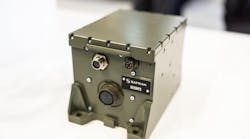by John Rhea
WASHINGTON — Now that I have your attention, let me explain what I have in mind.
With the presidential election campaign mercifully culminating in this month's election, this may be a good time for the high-technology industries to pick up on an idea that the candidates seem never to have understood — and make some money off of it.
The idea is the primary and secondary education business — generally referred to as K-12 — and this country spends $360 billion a year on it. What Gov. George W. Bush and Vice President Al Gore apparently ignore is that the federal government funds only about $25 billion of that, mostly for the neediest children. The remaining $335 billion is jealously guarded at the state and local level.
Local control of schools is a sacrosanct American tradition, as it should be, but this situation makes for a fragmented market, which in turn complicates the task of introducing badly needed new technologies.
I think there's a way around this impasse, and I propose to offer precedents from my experience that I hope will at least get people thinking about a new approach.
Why not outsource many of the educational functions to the private sector at the local school district level? A combination of competitive bidding, contractual guidelines to establish performance standards, and various incentive and cost-recovery fee schedules could create a healthy business climate while simultaneously solving what everybody agrees is one of this country's most pressing problems.
If anybody has the necessary expertise to assist the school districts in getting such a process under way, it's the program managers at the U.S. Department of Defense, particularly after the acquisition reforms instituted by former Defense Secretary William Perry. And who would be better qualified to perform the work than today's defense contractors and subcontractors?
Realistically, any program of this sort would have to begin at the state level, perhaps one of the more progressive states that other states tend to emulate. There's no point in every school district reinventing the wheel by writing its own procurement guidelines. To get the ball rolling, a visit to the Pentagon might be a useful educational experience for state school officials.
The guidelines could be flexible, taking into account job security for the teachers and administrators already employed in the district and the various standard-of-learning requirements now being imposed by some states. They could also cover support functions, such as custodial maintenance, the school bus fleet, and cafeteria operations. The state guidelines would only be advisory; parents and local citizens are not likely to accept a one-size-fits-all approach. School districts could buy all, part, or none of the program.
What's in it for the high-technology industries? More or less in order of importance, new business and the gratifying feeling of contributing something to the nation's welfare. In the best traditions of Adam Smith, this process should not be based on altruism.
The successful high technology companies already are involved in education. I've seen estimates that an engineering degree is obsolete within seven or eight years. The companies that don't keep their talented people abreast of the state of the art inevitably fall behind those that do.
An outstanding example from my experience is the IBM Education Division in Poughkeepsie, N.Y. I've spent some happy hours on the campus there — and, yes, it looks just like a small, first-class college — and I can vouch for the quality of the programs. The subject matter was, of course, computers in their many manifestations. The resident faculty conducted in-house seminars and took their show on the road to convert the skeptical to the benefits of computers.
I'm convinced that the capabilities of IBM and other progressive companies are a national asset. Furthermore, I don't think anybody would disagree with the need for overhauling K-12 education in this country. Hardly a month goes by that there's not an item in the newspapers about how American sixth graders know less about physics than their counterparts in Denmark, third graders knowing less math than those in Taiwan, etc., etc., ad nauseam.
I remember the firestorm that broke out after the Soviets launched their Sputnik satellite on Oct. 4, 1957. Somebody had to take the blame, and that somebody was the nation's educators. And, contrary to the well-established tradition of local control of schools, the result was a big federal push to throw money at the problem of inadequate science and math capabilities — all in the name of national defense.
A decade later there was another failed attempt, again using federal funds, to get computers into the schools under what was variously called computer-aided education and computer-aided instruction — and later referred to as the great teaching machine fiasco. Personal computers were in an embryonic state in the late 1960s, and the idea had to wait for technology to catch up. Today, under the new name distance learning, computers in schools are commonplace.
Outsourcing need not be daunting for local school authorities. They do it on a limited basis already. In the town where I live the high school has just outsourced trash collection to a private contractor because the school staff didn't want to buy new trash receptacles to meet county standards.
My own high school was too small, only 90 students, to have a band or football team or cafeteria. We couldn't very well contract out for a band or football team, but we did outsource the food service function to a local church. Unfortunately, the school officials didn't maintain adequate quality control over the school lunches, the students didn't eat them, and the experiment collapsed. There's a lesson here that needs to be remembered.
My proposal is admittedly unconventional, but I think there are demonstrated national needs and capabilities that somehow have to be matched up. What's missing is the mechanism.
I don't think the controversial charter schools or vouchers are the answer. They're essentially near-term solutions aimed at limited problems. I think a more sweeping approach is in order.
With all the brainpower represented by the readership of this magazine, surely some of you must have a better idea. Don't be shy. Let's hear from you. You can e-mail me at [email protected].


